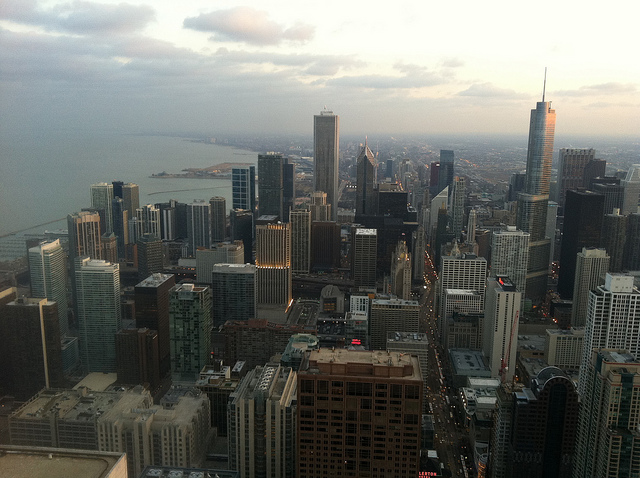Troubling Study Shows South & West Side Neighborhoods Face Alarming Disparities In Food, Health, Stress
By Stephen Gossett in News on Mar 23, 2017 4:35PM

Flickr / Photo: Sean Biehle
A large-scale study of nine Chicago neighborhoods, conducted by the Sinai Urban Health Institute, examined a variety of health and social ills: food insecurity, domestic violence, post-traumatic stress disorder, smoking, arrests, obesity. Each neighborhood trailed below the national-average standard in most areas, researchers found.
“The data paint a stark and complex picture of health and wellness in many Chicago communities, varied by race, income and ethnicity, demonstrating the value in collecting hyperlocal information,” said Dr. Sharon Homan, president of the Sinai Urban Health Institute," in a statement. “To develop meaningful interventions to improve health, we must first understand the constellation of social factors that impact people and families within each community.”
The study—which researchers said was the largest-scale face-to-face health survey ever completed in the city—looked at several neighborhoods predominantly of color on the South and West Sides, with other areas—Hermosa on the North, the west-of-Western portion of West Town, and the majority-white Norwood Park on the Northwest Side—included as a control. The other areas of study were Chicago Lawn, Gage Park, Humboldt Park, North Lawndale, South Lawndale, West Englewood.
Among the other troubling findings:
- Many residents on the Southwest and West Sides said their health was only fair or poor. In South Lawndale, 44 percent rated their health that low, which is almost quadruple the national average.
- Vital healthcare needs are not regularly being met. In North Lawndale, for example, nearly a quarter of residents don't have their prescription needs met; and nearly 40 percent in Gage Park don't have the dental care they require.
- In North Lawndale and West Englewood the majority of men have been arrested at some point in their lives. That figure is almost 50 percent in Chicago Lawn and Humboldt Park.
- Twenty-seven percent of people in Humboldt Park experience current symptoms of PTSD.
- Thirty-five percent of adults in West Englewood don't feel safe when going out alone. In Hermosa, the same figure is just 8 percent.
“There is nothing more basic and essential to human happiness than health and wellbeing—conditions determined by both an individual’s circumstance and behavior,” said Terry Mazany, president and CEO of The Chicago Community Trust, which funded the survey, in a statement. “The large disparities that exist between neighborhoods only miles apart should be troubling—and, at the same time, offer opportunities for solutions.”
More than 1,900 people were surveyed in the nine neighborhoods for the study, according to researchers.